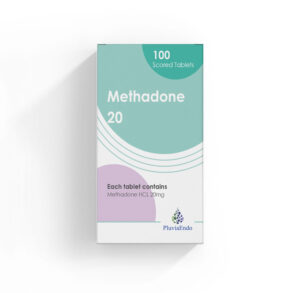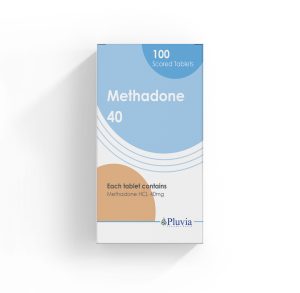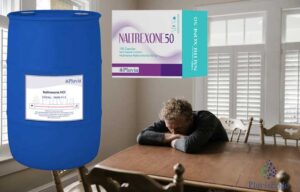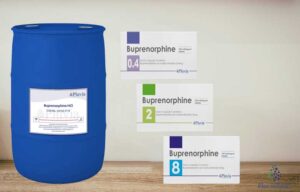Methadone therapy is a vital component of addiction treatment. It’s offering a pathway to recovery for individuals grappling with opioid dependence. Medical research provides insights into its efficacy, and understanding the lived experiences. Also, the perspectives of patients undergoing this treatment are paramount. In this extensive exploration, we will delve deep into methadone therapy through the lens of patients. In addition, shedding light on the multifaceted journey toward healing and recovery.
The Decision to Pursue Methadone Therapy
The decision to embark on methadone therapy represents a significant turning point in the lives of many individuals struggling with opioid addiction. It is often preceded by a long and arduous battle with substance abuse, marked by cycles of hope and despair. Patient narratives reveal the internal struggles and emotional turmoil that precede this decision. Also, Individuals grapple with the fear of withdrawal, the stigma associated with addiction, and the uncertainty of what lies ahead. However, amidst the darkness of addiction, there is a glimmer of hope – the promise of methadone therapy as a beacon of light on the path to recovery.
Overcoming Stigma and Barriers
Despite methadone‘s proven efficacy, methadone therapy is not without its challenges. Stigma, misconceptions, and societal judgments surrounding addiction and medication-assisted treatment (MAT) often create formidable barriers to access and acceptance. Patients navigating the world of methadone therapy often find themselves grappling with feelings of shame, guilt, and self-doubt as they confront the stigma associated with addiction. The fear of being judged or ostracized by society can be a significant deterrent for individuals seeking treatment. It is effective in leading many to suffer in silence rather than seek the help they so desperately need. Addressing stigma and dismantling misconceptions surrounding methadone therapy is crucial. Because it ensures that individuals have access to the care and support they need. It’s vital to overcome addiction and reclaim their lives.

Treatment Dynamics of Methadone Therapy
Once enrolled in methadone therapy programs, patients must navigate a complex and often daunting treatment landscape. Daily dosing requirements, clinic visits, and stringent regulations can pose significant logistical challenges for individuals already grappling with the demands of daily life. Patient narratives shed light on the practical hurdles and logistical obstacles that individuals face in adhering to treatment protocols. From transportation issues and childcare responsibilities to employment concerns and financial constraints. Moreover, the transition from active addiction to maintenance therapy is fraught with uncertainties and emotional upheaval. Also, requires patience, perseverance, and unwavering support from healthcare providers, family members, and peers.
Methadone Therapy Impacts on Daily Life
Despite the challenges, methadone therapy has a profound and transformative impact on the daily lives of individuals undergoing treatment. Patient testimonials underscore its efficacy in mitigating cravings, reducing withdrawal symptoms, and restoring stability. For many individuals, methadone therapy represents a lifeline – a source of hope and healing amidst the chaos of addiction. It provides them with the tools and support they need to rebuild their lives, repair fractured relationships, and pursue their goals and aspirations. However, patients also acknowledge the need for ongoing support, counseling, and holistic interventions. It is crucial to address the underlying issues driving their addiction and promote sustained recovery.

Building a Supportive Community
Central to the success of methadone therapy is the presence of a supportive community that understands and validates the experiences of individuals in recovery. Peer support groups, counseling services, and community-based organizations play a crucial role in fostering connection. Also, in accountability, and hope for individuals undergoing methadone therapy. Patient narratives highlight the transformative power of peer support and shared experiences in overcoming feelings of isolation, shame, and self-doubt. By fostering a sense of belonging and solidarity, these support networks empower individuals to stay committed to their recovery journey and navigate the challenges of addiction with resilience and courage.
Embracing Long-Term Recovery
Recovery from opioid addiction is not a destination but rather a lifelong journey filled with ups and downs, twists and turns. Patient perspectives underscore the importance of adopting a long-term mindset and embracing the principles of self-care, resilience, and self-compassion. Methadone therapy provides individuals with the stability and support they need to overcome the immediate challenges of addiction. But Sustained recovery requires ongoing commitment, dedication, and perseverance. It involves addressing the underlying issues driving addiction, cultivating healthy coping mechanisms, and building a fulfilling and meaningful life beyond substance abuse.
Conclusion
Patient perspectives offer invaluable insights into the nuanced realities of methadone therapy. By amplifying patient voices and centering their experiences in discussions surrounding addiction treatment, we can cultivate greater empathy, understanding, and support for individuals navigating this journey toward healing and recovery. As we continue to champion patient-centered approaches to care, listening to and honoring patient narratives remains paramount in shaping more effective, equitable, and compassionate treatment practices. By embracing the voices of those with lived experience, we can create a more inclusive, supportive, and empowering environment for individuals seeking treatment for opioid addiction and pave the way for a brighter and healthier future for all.









